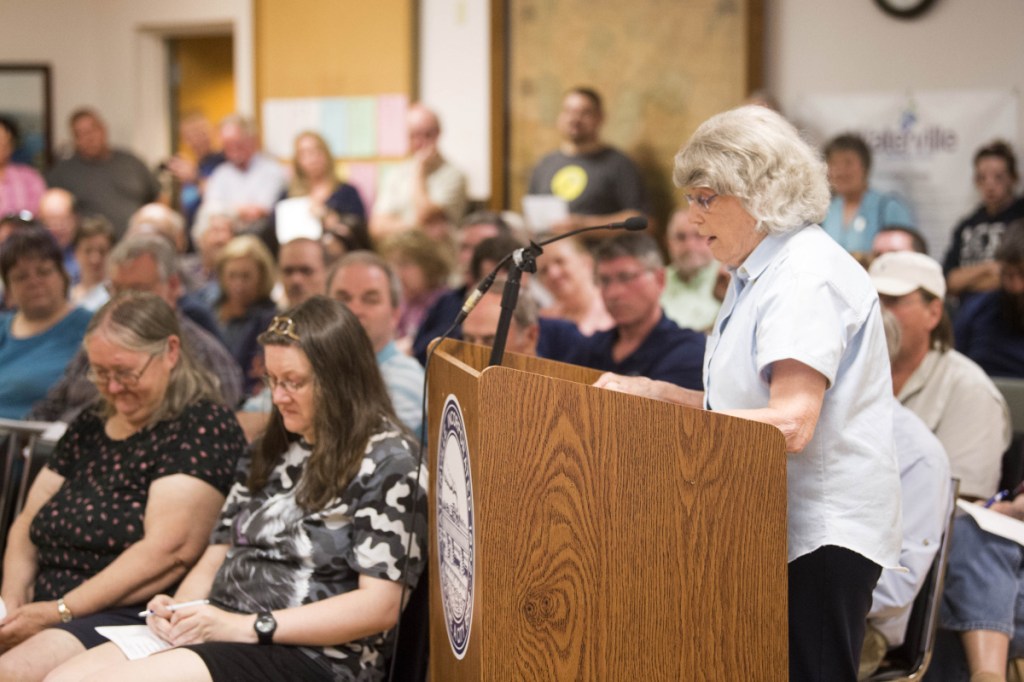Property taxpayers in Maine have a heavy burden to bear. This is especially true in Waterville. To start with, we are a small city geographically speaking, at only 13.5 square miles. Of that area, we have a large number of nonprofits, including two hospitals and two major colleges and numerous churches. Between the nonprofits and park land, about 32 percent of the city is not taxable.
Taking those points into consideration makes any state aid the city gets really important. One of the biggest sources of state aid is General Purpose Aid to Local Schools, which came to about $13.3 million for the 2017-18 school year. This aid, as the name suggests, has to go to offset the cost of education.
Also critical to the city is a program called Municipal Revenue Sharing. This is state aid that can be used for any city expenditure, like the fire department, police department or the library. It is hard to overstate the importance of revenue sharing to a city like Waterville.
First enacted in 1972, revenue sharing was designed to take a percentage of income and sales taxes received by the state and divert them directly back to Maine’s cities and towns. The sales taxes include the money that we all pay when we go to lunch at Applebee’s, buy our kid’s school clothes at Wal-Mart or shop at a downtown local business. Revenue sharing helps make sure that some of the tax money that we have already paid gets back to the towns where we live to support local services like our fire and police departments. It helps keep well-paying jobs here.
In 2000, the Legislature recognized that service center communities like Waterville, where people come to from surrounding communities to work, shop, seek health care and go to college, face additional burdens. They enacted “Revenue Sharing 2” to help service centers deal with their additional financial stress. Around 5 percent of state sales and income taxes flowed back to Maine’s cities and towns to help maintain necessary services and lower local property taxes.
Until the Great Recession in 2008, this worked well. Revenue sharing gradually increased each year, reaching a peak in 2007 of almost $3 million. These payments have since plummeted. Our current governor even tried to eliminate the program, calling it “welfare for cities.” (Interestingly, when he was mayor of Waterville, Paul LePage cried out loudly when then-Gov. Baldacci first proposed cutting revenue sharing in response to the budget crisis brought on by the recession. Funny how things change.)
The Legislature refused to go along with the attempt to do away with revenue sharing and kept it in place despite Gov. LePage’s veto, but it is a mere shadow of what is used to be. Payments to Waterville reached a low point in 2014 at just over $1 million and haven’t moved much since then.
Any cuts to revenue sharing must be made up either through cuts to already-strained services or through higher property taxes. We can’t keep shifting property taxes onto those who can least afford it, like seniors on fixed incomes.
I think the program should be fully funded again as part of an effort to make our tax system fairer. All of Maine’s property taxpayers face too high a burden, and this is especially true in places like Waterville, with our role as a service center and high level of tax-exempt property.
Property taxpayers need all the help we can get from the state. Revenue sharing is a great way of providing it.
Colleen Madigan is a Democrat serving her first term in the Maine House of Representatives and represents part of Oakland and part of Waterville. She previously served a term in the Maine State Senate. She serves on the Legislature’s Health and Human Services Committee.
Send questions/comments to the editors.


